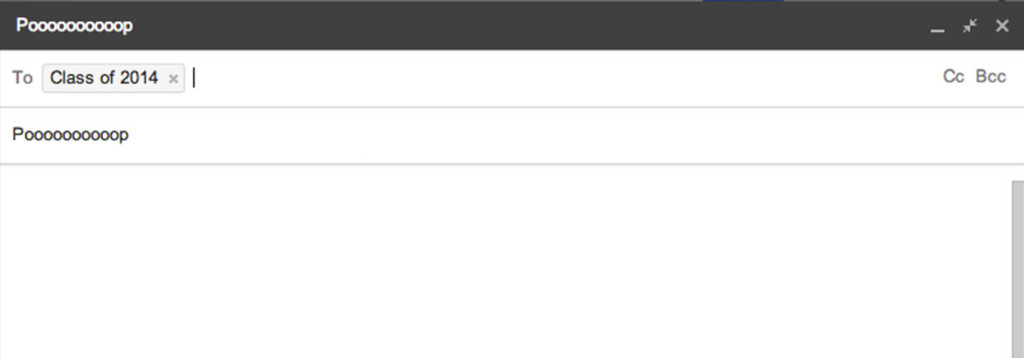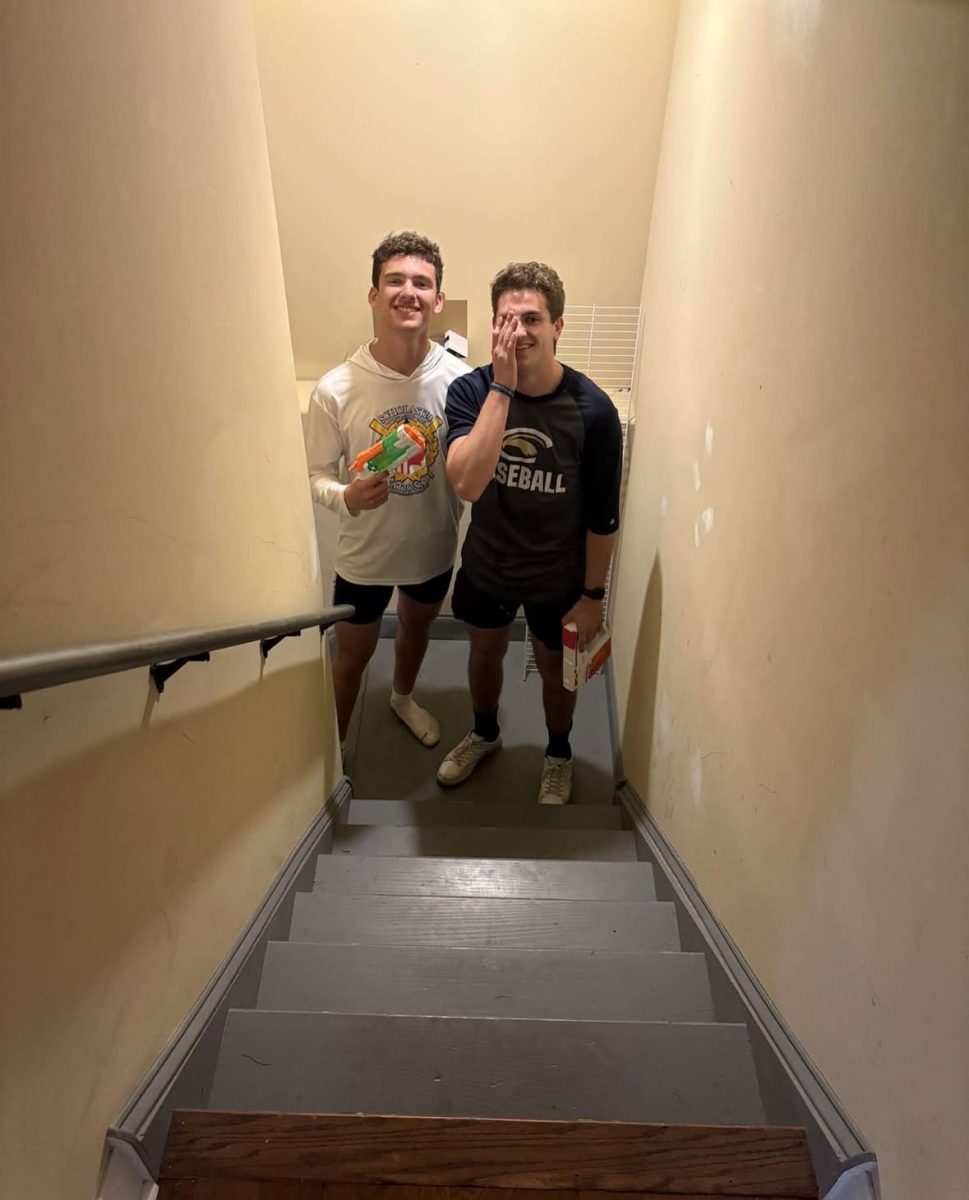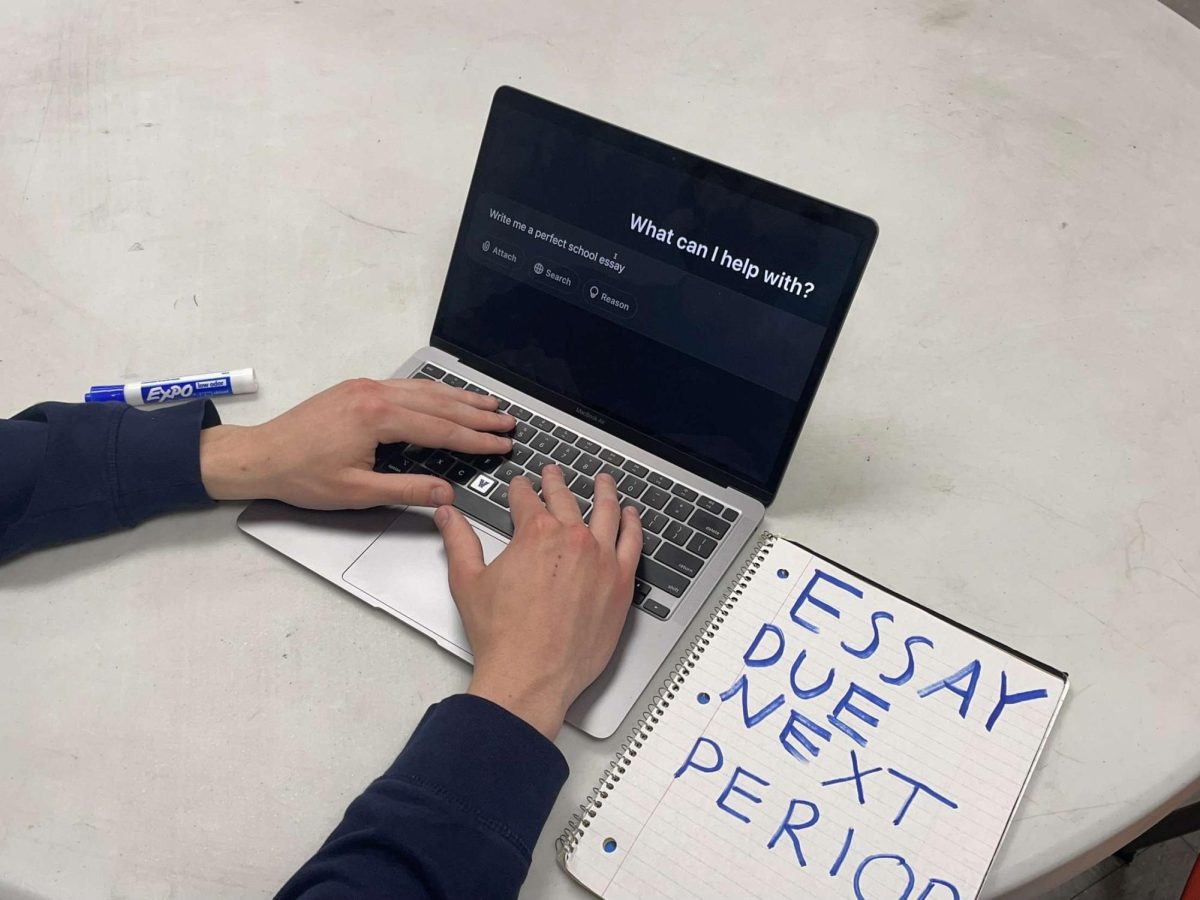What happens when fun and games have drastic consequences?
Every Malvern student has read an email that goes something like this: “POOOOOOOOP!” Maybe there are some extra exclamation points, some witty lines, or even a few callouts, but they are all the same: a Malvern student has sent an email from another student’s account.
As with many things in life, it’s all fun and games until someone gets hurt. When the administration took a step to end all this poop, questions were asked: For what have been dubbed ‘Poop Emails,’ where do we draw the line? Is hiding behind a screen acceptable?
The BFC found that students’ reactions to such emails were rather ambivalent. Some loved reading each email, and others saw it as an utter nuisance that cluttered an inbox. Junpei Li’14 said, “Someone sent a poop email using my account. And I think those emails are really annoying because I sometime missed important information because some emails looked like poop emails!”
Zach O’Neill ‘14 appreciates the emails, but also noted, “Mass emails, in my opinion, shouldn’t be about poop; save that kind of discussion for Mr. Stinger’s class.” O’Neill finds the humor in the poop emails, but also notes that they make students more cautious the next time they use a laptop, and for good reason. “A real mass email has a clever subject line, a witty remark or two, and it makes the person who left their account up never want to use a Chrome Book again.”
Cluttered inboxes, however, were not the whole problem. What caused the cessation of mass emails was a few emails that directly attacked students. These few emails were harsh, and suggested that a line has been crossed.
The harmless emails used to come periodically, usually with a clever, serious subject line and “POOP” as the subject. The pranks were annoying but relatively harmless. Then they became pretty nasty, sometimes even containing personal attacks. It was obvious something had to be done.
Recently, students were notified by Mr. Dougherty via mass email that the ability for students to send these types of emails was taken away. The class lists were disabled, and the email inboxes fell quiet. Students were quick to notice that the onslaught of poop emails had ceased, but the effects of this crackdown are more than just an end to annoying spams.
Any email that may be relevant to large groups of students can no longer originate from a student account. For example, on a recent Wednesday night, Jack St. Amour ‘14 attempted to notify the school about the upcoming Intramural Elite Eight games in the John Ostick Cup. Weeks ago a simple email from Jack would have sufficed. Instead the email was forwarded five times from helpful teachers. The five forwards almost equal the daily poop email count at its height.
The poop emails have been put to rest. So have the more harmful ones. But was this the right decision?
There are a few different solutions to the poop email other than what administration has chosen. The administration should look into solutions that allow students to send group emails, but also have the security and privacy needed to ensure no poop emails will be sent.
As the Editorial Board wrote in the November paper, “As Malvern students, we are responsible for own actions. When we represent our school, we should do it with class.” Every person needs to be responsible for what they say, anywhere. Social media, even emails, work in the same way. Until there were the harsh, personal messages, students were not offended. Derisive, hateful emails that called out specific students and their families is not appropriate in any setting. When a student uses email, or any other form of social media, to cover their comments in anonymity, the problems arise.
There have been recent issues regarding what students post behind a screen, whether they be anonymous or on one’s own social media page. It can be fun and games, but when it comes to harming the image of the school or another person, the fun quickly ends. These forms of media have so much potential, but it is up to each of us to be cautious of what we post.
Earlier this year, a campaign was started in Coach Harmatuk’s class reminding students to “Think Before You Tweet” or TBYT. And it doesn’t just apply to tweeting or emailing. We always have to be conscious of what we say and do. Although the old adage says, “Sticks and stones may break my bones, but words will never hurt me,” when we put it out on the internet, anything can come back to bite us.
More perspective on this topic from Jack Marchesani ’15 & Mike McCarthy ’15



















